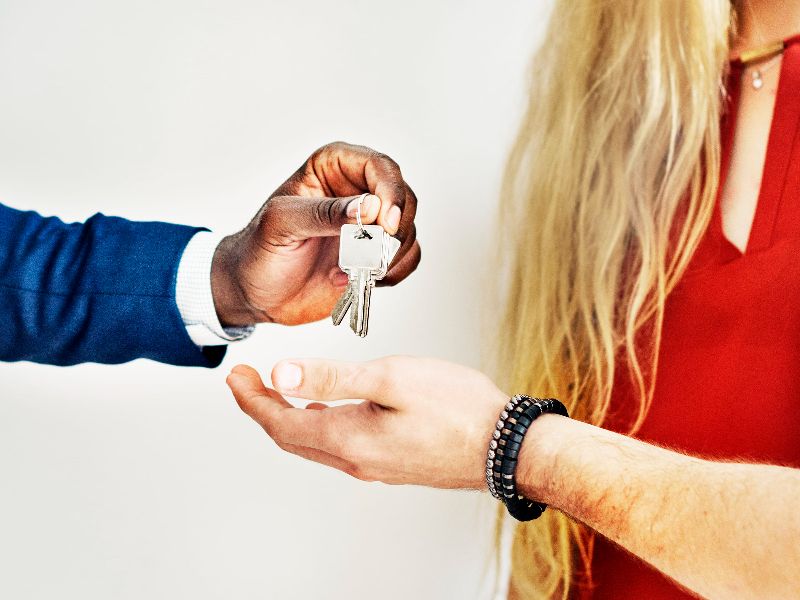First Homes - the scheme for First-Time buyers

What is First Homes?
First Homes is a new UK Government initiative to help first-time buyers buy a home and get on the housing ladder. The Government hopes that First Homes will account for at least 25% of all affordable homes delivered by the new homes builders.
What is a First Home?
In the context of the Government’s First Homes scheme, a First Home is a home which:
Must be sold at a discount of at least 30% compared to the property's market value. This means if the market price of the home is £200,000 it has to be sold to the First Homebuyer for no more than £140,000, (£200,000 less 30%)
Is sold only to a person or household which meets the eligibility criteria for First Homes
Will have a restriction registered on the title at HM Land Registry to ensure that the First Homes discount is passed on to each subsequent buyer of that First Home. This means if the £200,000 First Home mentioned above has a market value of £250,000 when the homeowner comes to sell the home, they have to sell it for no more than £175,000 so that the 30% discount is passed on.
The first time a First Home is sold the purchase price (after taking into account the discount) may not be more than £250,000 (rising to £420,000 across Greater London).
Who can buy a First Home?
You can purchase a First Home if you meet the following criteria:
First Homes are only available to First-time buyers (as defined below)
A First Homes buyers annual income must not exceed £80,000 (£90,000 in Greater London). If buying a First Home as part of a couple or a group, the combined household income cannot exceed £80,000 (£90,000 in Greater London).
A First Homebuyer should have a mortgage or home purchase plan to fund a minimum of 50% of the discounted purchase price.
Who is a First-Time Buyer?
A first-time buyer is an individual who:
Has not previously purchased a home or dwelling in the UK and not previously acquired an interest in a home or dwelling in a country or territory outside of the UK
Why do we need a First Homes scheme?
Getting on the housing ladder is becoming increasingly difficult following a period of high house price inflation and the large deposit required by lenders, which has put homeownership out of reach for many aspiring first time buyers. The First Homes scheme aims to level up the playing field so that those without high incomes or access to the Bank of Mum and Dad can get a foot on the housing ladder.
Will mortgage lenders be supporting the First Homes scheme?
Yes, lenders such as the Halifax and the Nationwide Building Society, the two biggest mortgage lenders in the UK, together with several local and regional building societies have announced that they will offer a range of high loan-to-value mortgages specifically for the First Homes scheme.
The following banks and building societies have announced that they will be offering 95% loan-to-value (95% LTV) mortgages for First Homes
Is the First Home Scheme any good?
Twindig supports any scheme that helps first-time buyers get a foot on the housing ladder - we believe in the social good of homeownership. Being able to buy a home at a discount of at least 30% to the underlying market value is a good thing. Owning a home provides both security of tenure and the opportunity to accumulate housing wealth. Homes are generally a households biggest financial asset and we believe that helping people get on the housing ladder is a good thing
First Home drawbacks
In our view, the First Home Scheme is a great 'First Step' to help you get on the 'First Rung' of the housing ladder. However, it is not a silver bullet solving all our housing problems.
The main drawback is when the First Home buyer seeks to move to their next home and take a step up the property ladder. If they purchased their home with a 30% discount, they will only receive 70% of the sale proceeds when they come to sell. The elephant in the home is therefore how will they afford to buy a home on the open market?
Unless they can buy their next home with a similar discount how will they be able to afford the market price? For instance, if we assume that today 2 bed home cost £200,000 and a three-bed home costs £300,000 A First Home buyer can purchase the 2-bed home with a 30% discount for £140,000. If in 10 years the open market prices have risen by 50% a 2-bed home will now cost £300,000 and a 3-bed £450,000. The First Homeowner will only receive £210,000 from selling their First Home, rather than the market value of £300,000 because the discount they received has to be passed on to the next homebuyer. There is a risk therefore that the First Home Buyer will not have enough housing equity to enable them to move up off the bottom rung of the housing ladder.
We still believe the scheme is good, but before choosing to use the First Homes scheme we advise first-time buyers to carefully consider their longer-term housing needs.
The solution
For First Home to work smoothly in the long run it will have to offer similar schemes to enable households to move up the housing ladder as their family situations change, or we will need a housing market that can properly accommodate fractional ownership and unfortunately, that market does not yet exist.